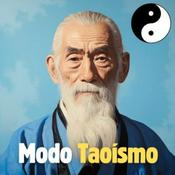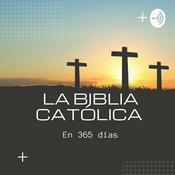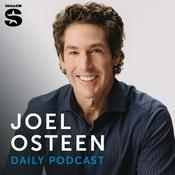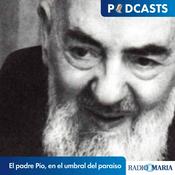Bishop Fulton Sheen Remastered
Bishop Fulton J. Sheen Audio Team

Último episodio
103 episodios
- Context & Background
Title: The Meaning of Love, The Meaning of Christmas
Why: A special Christmas telecast designed to counter the modern notion that man can perfect himself solely through psychology or self-discipline.
Date: December 1955
Location: The Adelphi Theatre in New York City, NY
Occasion: Episode of the Life Is Worth Living Television Series
Summary
Bishop Sheen opens this telecast by contrasting the two fundamental philosophies of life: the ancient and modern attempt by man to reach perfection through his own efforts versus the Christian reality of God coming down to man. He argues that systems relying on self-discipline or mere psychology fail because humanity cannot "lift itself by its own bootstraps." Sheen diagnoses the human condition as one containing an internal "beast" that cannot be tamed from within; just as chemicals cannot become plants unless the plant comes down to absorb them, man cannot ascend to the divine unless the Divine first descends to him.
This analogy sets the stage for the true definition of Christmas: the Incarnation as a necessary rescue operation rather than a mere historical event. Sheen explains that for any lower order of creation to rise, the higher order must humble itself and lift the lower up—a law of nature that finds its ultimate expression in Bethlehem. He concludes that Christ’s birth was not intended to make humans "nice people," but to transform them into "new men" and children of God. The talk ends with the comforting reminder that because Christ was born among beasts in a manger, He is unafraid to be born within the "beast" of the imperfect human soul. - Context & Background
Title: Christmas Address 1944: How You Got That Way
Why: To explain the spiritual origins of human brokenness and offer hope to a war-weary nation by framing the Incarnation as a divine rescue mission.
Date: December 1944
Location: NBC Radio Studios in New York City, NY
Occasion: A national radio broadcast delivered on Christmas Eve during World War II.
Summary
Speaking to an anxious America during the height of World War II, Bishop Sheen tackles the fundamental mystery of why humanity is prone to conflict and error. He argues that modern man has misunderstood the nature of freedom, treating it as a license to ignore the "manufacturer's instructions" of the human soul. Using the analogy of a car owner trying to run an engine on perfume rather than gasoline, Sheen explains that the chaos of the world stems from the original disorder within the human heart—a rejection of God's design that has left humanity functioning below its true potential, capable of greatness but inclined toward destruction.
Sheen counters this grim diagnosis with the radical hope of Christmas, describing Bethlehem not merely as a manger, but as "God's beachhead" in enemy territory. He connects the suffering of families with soldiers overseas to the sacrifice of the Heavenly Father, calling the Star of Bethlehem God's own "service flag." The address concludes with a call to internal transformation; Sheen insists that peace cannot be found in the cessation of external battles alone, but only by allowing Christ to be formed within the soul, restoring the original masterpiece of human nature one person at a time. - Context & Background
Date: Likely September 1974
Location: Loyola Retreat House in Faulkner, Maryland (USA)
Occasion: A retreat preached to diocesan priests of the Archdiocese of Washington
Why: Given during the chaotic decade following Vatican II, this talk was part of a series titled "Renewal and Reconciliation" aimed at steadying the Church and addressing the identity crisis facing the priesthood.
Summary
Bishop Sheen diagnoses a crisis in the modern Church where the prevailing attitude has shifted from "I am holier than thou" to "I am worldlier than thou," caused by a fatal misunderstanding of the biblical concept of "the world." He argues that in trying to embrace the world as God's creation, the Church accidentally embraced the "spirit of the world"—organization without God—which led to a polarization between those who wanted only rigid stability (the rock) and those who wanted only constant change (the river). This confusion created a generation of "neurotics" who replaced deep prayer with endless discussion, using theological debate as a convenient escape from making difficult moral decisions, much like the Samaritan woman at the well.
The most tragic consequence of this shift, Sheen asserts, is that Jesus became an "outer truth" to be analyzed rather than an "inner truth" to be loved, leading to a sterile faith where crucifixes were discarded to avoid alienating modern society. He observes that while the institutional Church ignored the person of Jesus in favor of sociology, the counter-culture was desperately seeking Him, proving that abstract virtues are useless without a personal Savior. Sheen concludes that we often prefer a "plastic Christ" that we can control because a living God is terrifying and demands real transformation, ending the speech with the ultimatum that his retreat is for those who love Christ, and for anyone else, "the retreat is over." - This talk offers a powerful antidote to the boredom and indifference that can settle into modern life, challenging the listener to live with total commitment and generosity. Bishop Sheen explains that a truly happy and energetic existence is not found in cautious self-preservation, but in "wasting" oneself for God and others. He argues that love is the engine of life, and without a great love to live for, we operate far below our true potential. This message is for anyone, young or old, who feels tired or uninspired and seeks to unlock a deeper level of purpose by giving themselves completely to a cause greater than themselves.
Drawing on his signature storytelling, Sheen illustrates this "all-out" principle with vivid examples. He recounts the story of King David, who, upon receiving precious water at great risk to his men, poured it out as an offering to God, teaching that things we "waste" for God are eternally remembered, while things we keep only for ourselves often spoil. This idea is powerfully reinforced by the woman who breaks her expensive alabaster jar of perfume over Christ's feet, giving everything at once in an act of extravagant love, rather than doling it out drop by drop. These stories serve as a model for a life lived not by calculation, but by total, unrestrained surrender to love.
Ultimately, Bishop Sheen connects this generous living to the power of faith. Using the story of Peter walking on the water, he explains that as long as Peter kept his eyes on Christ, he could do the impossible. The moment he looked away and began to calculate the danger of the winds and the waves, he began to sink. Sheen frames this as a timeless lesson: if we believe in the incredible, we can do the impossible. He concludes with a stirring call for his listeners to become "other Christs" in the world, so that their lives of joyful self-sacrifice might prove to a skeptical world that Jesus is truly God. - This powerful and moving conference addresses the spiritual fatigue and mediocrity that can settle into a person's life. Bishop Sheen presents a compelling argument that the path to renewed spiritual energy and deep fulfillment lies not in self-preservation, but in the seemingly paradoxical act of "wasting" one's life for God. For anyone who feels their love and service has become calculated or lukewarm, this talk offers a liberating invitation to embrace a life of total, uncalculated, and joyful self-giving, revealing that it is only in losing our lives that we truly find them.
Sheen begins by diagnosing a spiritual apathy in the modern world, where people carefully measure out their love and service, a condition the Middle Ages called acedia. He contrasts this timid approach with the "divine waste" exemplified by key figures in scripture and history. He reflects on the woman who broke her alabaster jar to anoint Jesus, an act Judas condemned as "waste" but which Christ defended as a "beautiful thing." This, Sheen explains, is the logic of love, which does not count the cost. He further illustrates this with the powerful story of King David, who, upon receiving water fetched at the risk of his men's lives, poured it out as an offering to God, deeming it too precious to drink.
Ultimately, Bishop Sheen's message is a passionate plea to escape the "barnyard" of a safe and mediocre existence. Citing a poem about a "tame old duck" that has forgotten how to fly, he warns that a life held in reserve is a life that loses its purpose and vitality. The sermon is a profound call to reject a faith of minimal investment and instead embrace the "ecstasy of surrender." By pouring ourselves out completely in love and service—wasting our time in prayer, our energy in charity, and our hearts in love for God—we participate in the beautiful and life-giving logic of the Cross.
Más podcasts de Religión y espiritualidad
Podcasts a la moda de Religión y espiritualidad
Acerca de Bishop Fulton Sheen Remastered
The "Bishop Fulton Sheen Remastered" series features a selection of sermons and speeches, dating from 1940 to 1974, which have been enhanced through AI and modern audio restoration techniques. This approach improves the quality and clarity of the original recordings, making Bishop Fulton Sheen's messages more accessible to today's listeners.
Sitio web del podcastEscucha Bishop Fulton Sheen Remastered, LA DOSIS DIARIA ROKA y muchos más podcasts de todo el mundo con la aplicación de radio.es

Descarga la app gratuita: radio.es
- Añadir radios y podcasts a favoritos
- Transmisión por Wi-Fi y Bluetooth
- Carplay & Android Auto compatible
- Muchas otras funciones de la app
Descarga la app gratuita: radio.es
- Añadir radios y podcasts a favoritos
- Transmisión por Wi-Fi y Bluetooth
- Carplay & Android Auto compatible
- Muchas otras funciones de la app


Bishop Fulton Sheen Remastered
Escanea el código,
Descarga la app,
Escucha.
Descarga la app,
Escucha.






































